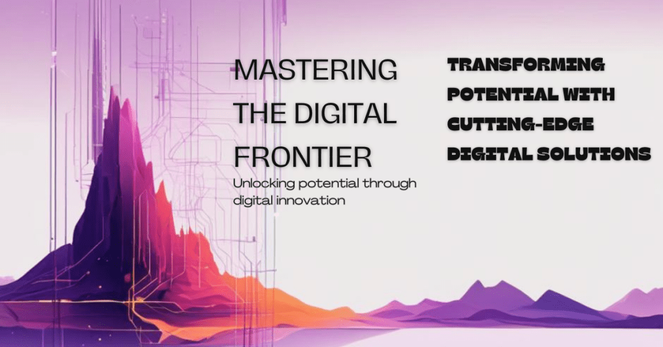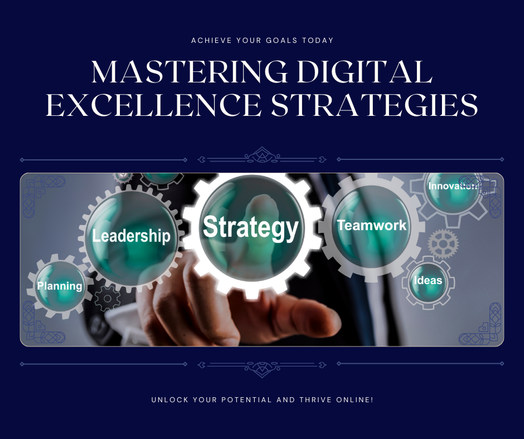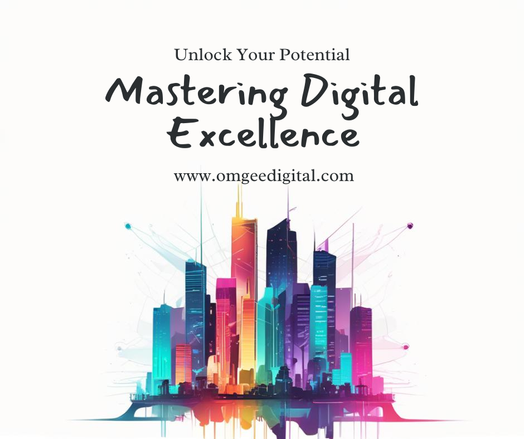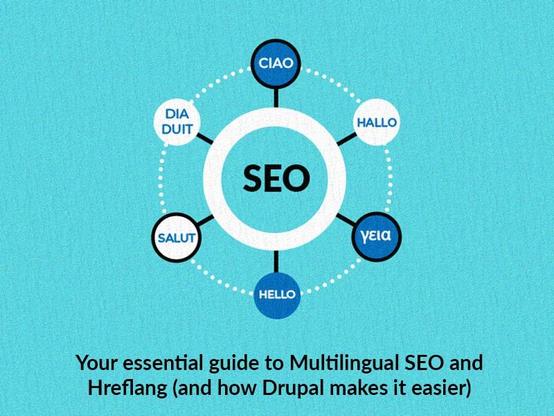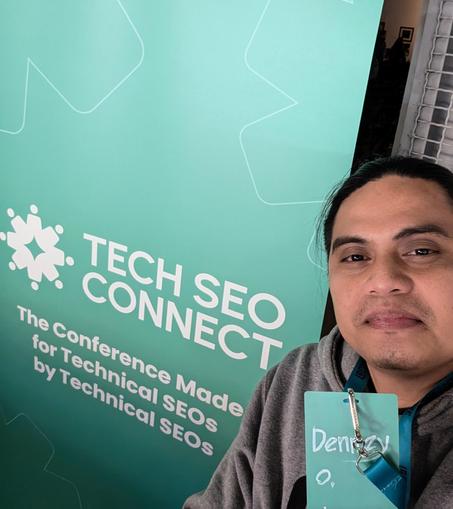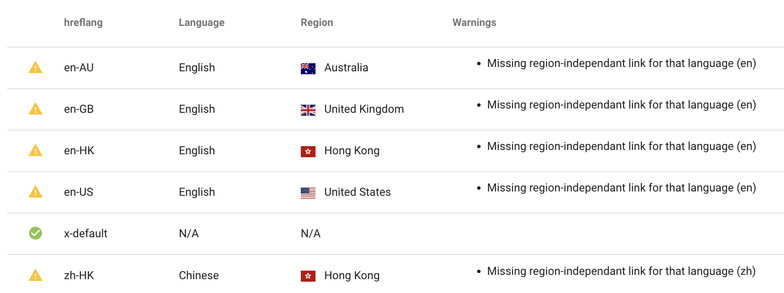Google's @johnmu doesn't want you to lump programmatic SEO with technical SEO - one is needed and respected and the other is spammy https://www.seroundtable.com/google-technical-seo-vs-programmatic-seo-39473.html
#technicalseo
SEO in Digital Marketing: Unlocking the Power of Search Engine
Optimization Discover the role of SEO in digital marketing with Infogen Tech’s comprehensive guide. Learn what SEO is, its importance, and how search engine optimization drives online visibility. Explore types of SEO—On-page, Off-page, and Technical .
https://infogentech.com/blog/seo-in-digital-marketing.php
#SEOInDigitalMarketing #WhatIsSEO #SearchEngineOptimization #ImportanceOfSEO #TypesOfSEO #SEOTechniques #OnPageSEO #OffPageSEO #TechnicalSEO
Want to see your web page content in rich results? Read this blog to learn all you need to know about applying Schema Markup or structured data. Additionally, find out how it can affect your SEO during a migration.
https://www.specbee.com/blogs/how-schema-markup-impacts-seo-during-website-migrations
#schemamarkup #seo #websitemigration #structureddata #drupal #searchengineoptimization #technicalseo #googleseo #richsnippets #jsonld #seobestpractices #organicsearch #onpageseo #serpoptimization
#Business #Reports
Google’s Muller cautions SEO pros · As web technologies change, SEO must change, too https://ilo.im/162uip
_____
#Business #SearchEngine #SEO #TechnicalSEO #AI #WebTechnology #Development #WebDev #Frontend #Backend
The Ultimate Guide to Solving Digital Marketing Pain Points in 2025
In today’s hypercompetitive digital landscape, excellence isn’t just a goal—it’s a necessity for survival. The most successful organizations have discovered that overcoming marketing challenges requires more than incremental improvements. It demands a fundamental reimagining of how we approach digital strategy. This comprehensive guide explores transformative approaches to common marketing obstacles. It provides a roadmap for those ready to elevate their digital presence from struggling to spectacular.
The Evolution of Digital Marketing Challenges
The digital marketing ecosystem has undergone dramatic transformation in recent years. According to research by McKinsey, businesses that successfully adapt to these changes typically see 20% higher marketing ROI. They outperform their competitors who keep traditional approaches. This gap continues to widen as consumer behavior evolves and technological capabilities expand.
Marketing leaders face unprecedented complexity in 2025. The proliferation of channels, data sources, and consumer touchpoints has created an environment where traditional marketing approaches quickly become obsolete. Research published in the Harvard Business Review reveals an important fact. 67% of CMOs feel unprepared for the rapid changes reshaping digital marketing. This sentiment reflects the genuine difficulty of navigating a landscape characterized by constant innovation and shifting consumer expectations.
The most forward-thinking organizations recognize these challenges as opportunities in disguise. By reconceptualizing their approach to digital marketing fundamentals, they transform potential roadblocks into strategic advantages.
Reimagining Lead Generation for Quality Over Quantity
Lead generation remains among the most persistent challenges for digital marketers. The shift toward quality-focused lead generation represents one of the most significant evolutions in digital marketing philosophy. Traditional approaches emphasized maximizing lead volume, often resulting in sales teams drowning in low-quality prospects. Modern strategies prioritize intent signals and behavioral indicators to identify genuinely promising opportunities.
The Precision Targeting Revolution
Advanced audience segmentation now allows marketers to move beyond basic demographic targeting. AI-powered platforms can analyze thousands of interactions points to find prospects showing genuine buying intent. This shift toward behavioral targeting has shown remarkable results. Companies using these approaches report 72% higher conversion rates than those relying on traditional techniques.
Implementing precision targeting requires several key components. First, organizations must combine customer data across touchpoints to build comprehensive profiles. Next, they should deploy machine learning algorithms to detect patterns indicating buying readiness. Finally, they must develop content and offers specifically engineered to meet the unique needs of each segment.
Value-Driven Lead Magnetism
The concept of lead magnets has evolved from simple gated content to sophisticated value exchanges. Today’s most effective lead magnets show a deep understanding of specific customer pain points. They offer significant solutions instead of surface-level advice. Recent studies show that lead magnets addressing specific industry challenges generate 3.5 times more qualified leads than generic offerings.
Creating compelling lead magnets requires thorough customer research to identify unmet needs and information gaps. The most successful organizations develop multi-format content that delivers immediate value while showcasing their expertise. This approach establishes credibility and positions the company as a trusted advisor rather than merely a solution provider.
Content Strategy Reimagined: From Creation Fatigue to Strategic Asset
Content production remains a cornerstone of digital marketing. Many organizations struggle with content creation fatigue. It is the constant pressure to generate fresh material across many channels. Shifting from a volume-centric to a value-centric approach signifies a fundamental transformation in content philosophy.
Strategic Content Frameworks
The most successful content strategies now employ structured frameworks that map content to specific stages of the customer journey. This approach ensures every piece serves a clear purpose rather than merely filling a content calendar. Research from the Content Marketing Institute shows that organizations with documented content strategies are 313% more to report success. Organizations with documented content strategies are 313% more to succeed than those without formalized approaches.
Implementing strategic content frameworks requires several key components. Organizations must first map their customer journey to identify information needs at each stage. They should then develop content formats optimized for different learning preferences and consumption contexts. Finally, they must implement measurement frameworks that track content performance against strategic objectives rather than simply measuring engagement metrics.
Quality Amplification Strategies
Rather than constantly creating new content, leading organizations now focus on maximizing the impact of their highest-performing assets. This approach, sometimes called content amplification, involves strategically repurposing and redistributing content across channels and formats. Studies show this approach typically reduces content production costs by 60% while increasing overall content performance by 35%.
Content amplification strategies begin with comprehensive performance analysis to identify top-performing assets. These pieces are then transformed into multiple formats—videos, podcasts, infographics, social snippets—to reach audiences with different consumption preferences. Finally, organizations implement sophisticated distribution strategies that match content format to channel characteristics for maximum impact.
Demystifying ROI: The New Paradigm of Marketing Measurement
Marketing measurement remains one of the most challenging aspects of digital strategy. Traditional ROI calculations often struggle to capture the complex, multi-touch nature of modern customer journeys. Forward-thinking organizations are implementing new measurement paradigms that provide more accurate insights into marketing effectiveness.
Holistic Attribution Frameworks
The most sophisticated marketing organizations have made progress. They have moved beyond simplistic last-click attribution. Now, they implement holistic models that recognize the contribution of all touchpoints. These models use advanced statistical techniques to assign appropriate credit to each channel and interaction. Research from Forrester indicates that companies implementing multi-touch attribution models typically see a 15-30% improvement in marketing efficiency. They achieve this through more accurate resource allocation.
Implementing holistic attribution requires several key components. Organizations must first consolidate data across platforms into unified customer views. They should then deploy algorithmic models that analyze interaction patterns to assign appropriate credit. Finally, they must develop visualization and reporting tools that make these insights accessible to decision-makers.
Revenue Impact Systems
Beyond attribution, leading organizations implement comprehensive revenue impact systems that connect marketing activities directly to business outcomes. These systems go beyond marketing metrics. They track how marketing initiatives influence metrics like customer lifetime value, retention rates, and expansion revenue. Studies show organizations with revenue impact systems achieve 23% higher marketing ROI than those using traditional measurement approaches.
Revenue impact systems begin with clear definitions of business outcomes and how marketing activities influence them. They incorporate data from across the organization—including sales, finance, and customer success—to build complete pictures of marketing impact. Finally, they implement regular reporting cadences that connect marketing activities to financial outcomes in language executives understand.
Technical SEO: From Complexity to Strategic Advantage
Technical SEO often shows a significant challenge for marketing teams due to its complexity and constant evolution. Leading organizations transform this challenge into advantage by implementing structural approaches to SEO management.
Core Performance Optimization
Recent algorithm updates have increasingly emphasized user experience factors like page load speed, interactivity, and content stability. Organizations that focus on these core performance metrics often experience a 25% higher growth in organic traffic. This is more than those focusing primarily on traditional ranking factors. This shift signifies a fundamental evolution in SEO strategy from keyword improvement to user experience enhancement.
The importance of performance optimization in enhancing user experience. It visually shows key elements such as solution, target, information, and achievement. Increase and success also contribute to the process of optimization. The accompanying text emphasizes that recent algorithm updates prioritize speed and interaction, which are crucial for improving user satisfaction. This suggests a focus on refining digital experiences by ensuring faster load times, seamless interactions, and efficient functionality.
Implementing core performance improvement requires several key components. Organizations must first set baseline measurements of key performance indicators like Core Web Vitals. They should then implement systematic enhancement processes addressing infrastructure, code, and content delivery. Finally, they must develop monitoring systems that detect performance degradation before it impacts rankings.
Semantic Search Adaptation
Search engines increasingly emphasize understanding user intent rather than simply matching keywords. This shift toward semantic search requires organizations to rethink their content development and optimization strategies. Research shows that content optimized for semantic search typically achieves 45% higher click-through rates. Such content also results in 32% longer user sessions than traditionally optimized content.
Adapting to semantic search begins with comprehensive research into the questions and needs driving searches in your domain. Organizations should then develop content that addresses these underlying needs rather than simply targeting keywords. Finally, they should implement structured data and content organization strategies that help search engines understand content relationships and relevance.
Implementation Framework: From Concept to Reality
Transforming marketing challenges into advantages requires systematic implementation. The most successful organizations follow structured frameworks that guide implementation while allowing for adaptation and learning.
Phased Transformation Approach
Rather than attempting wholesale transformation, leading organizations implement phased approaches that deliver incremental value while building toward comprehensive change. This methodology typically begins with quick wins that build momentum and demonstrate value, followed by more substantial structural changes. Research indicates that phased digital transformation initiatives are 2.5 times more likely to succeed than big bang approaches.
Implementing phased transformation begins with comprehensive assessment to identify the highest-impact opportunities. Organizations then develop sequenced implementation plans that balance quick wins with foundational improvements. Finally, they establish clear success metrics for each phase to demonstrate progress and secure continued support.
Capability Development Strategy
Sustainable transformation requires building internal skills rather than relying exclusively on external knowledge. Progressive organizations implement deliberate skill development programs that gradually increase their teams’ ability to execute advanced marketing strategies. Studies show that organizations prioritizing skill development see a 40% higher long-term ROI on their marketing investments. This compares to those mainly relying on agency support.
Capability development strategies begin with skills gap analysis to identify priority development areas. Organizations then implement multi-modal learning programs combining formal training, hands-on application, and coaching. Finally, they create structural opportunities for knowledge sharing and collaborative problem-solving to accelerate skill development across teams.
Conclusion: Embracing the Transformation Mindset
The journey from marketing challenges to strategic advantages requires more than tactical adjustments—it demands fundamental shifts in mindset and approach. Organizations that successfully navigate this transformation share several key characteristics: they embrace complexity rather than simplifying it, they prioritize sustainable systems over quick fixes, and they view marketing as a strategic function rather than a tactical necessity.
The digital marketing landscape will continue evolving at accelerating rates. Organizations that develop adaptive capabilities will thrive. They will have the ability to sense changes, interpret their implications, and rapidly reconfigure their approaches. This adaptive capacity signifies the most valuable strategic advantage in an era of constant disruption.
Successful digital marketing campaign examples
Consider your organization’s digital marketing challenges. Are these genuine limitations? Or are they opportunities for differentiation waiting to be unlocked? The answer will reveal your next competitive advantage.
8 Unexpected Digital Marketing Trends Every Brand Should Embrace in 2025
#ContentStrategy #DigitalMarketingExcellence #LeadGeneration #MarketingROI #TechnicalSEO
#Development #Reports
Redirecting 404s to homepage? · Google’s Martin Splitt warns against it https://ilo.im/162p5g
_____
#Business #Google #SearchEngine #Crawler #Bot #SEO #TechnicalSEO #Redirects #WebDev #Backend
Stay ahead of the curve in 2025! SEO is evolving, and you need to adapt. 🔍
From AI-driven strategies to voice search optimization, find out what will shape the future of SEO and how to leverage it for your business growth. Don't miss out on these game-changing trends!
Red More: https://orbitwebtech.com/seo-trends/
#seo2025 #seotrends #seotips #searchengineoptimization #digitalmarketing #contentmarketing #onpageoptimization #offpageoptimization #technicalseo #localseo
Did you know?
Sites with a Core Web Vitals score of 90+ see 15% higher ranking on Google.
Use Python to monitor your metrics: Lighthouse CLI + Pandas = 🔥
#TechnicalSEO
Follow for weekly SEO insights!
Did you know?
Sites with a Core Web Vitals score of 90+ see 15% higher ranking on Google.
Use Python to monitor your metrics: Lighthouse CLI + Pandas = 🔥
#TechnicalSEO
Follow for weekly SEO insights!
What’s your favorite technical SEO tip? Share below!
#TechnicalSEO #SEO #DigitalMarketing
4/4
What’s your favorite technical SEO tip? Share below!
#TechnicalSEO #SEO #DigitalMarketing
4/4
“A well-structured site structure creates a 100% search-crawlable sitemap that indexes the contents and also ranks. - Momenul Ahmad
Read more about #AdvancedSEO
https://www.seosiri.com/2021/11/advanced-seo-plans.html
#search #searches #searchterms #searchmetrics #technicalseo #onpageseo #offpageseo #seo
Decoding URL Fragments: A Comprehensive Technical SEO Guide
URL fragments, those often-enigmatic additions to URLs after the hash symbol (#), can be powerful allies or sneaky saboteurs in your SEO journey.
This comprehensive guide unravels the mysteries surrounding URL fragments, exploring their purpose, impact on search engine optimization (SEO), Read more- https://www.seosiri.com/2024/12/fragments.html
#seo #technicalseo #advancedseo #fragmenturl #Fragment #fragmentSEO #seosiri #momenulahmad
Multilingual websites can attract a wider audience! Read this blog to strengthen your technical knowledge about multilingual SEO and the impact of hreflang tags.
https://www.specbee.com/blogs/multilingual-seo-and-hreflang-how-drupal-makes-it-easier
#multilingualwebsite #multilingualseo #hreflang #hreflangtags #internationalseo #localseo #drupalmodules #drupalseo #technicalseo #searchenginerankings
Technical SEO: Good things are yet to come! 😉
#technicalseo #techseoconnect
#Development #Reports
Google clarified support for robots.txt fields · Directives such as ‘crawl-delay’ are not supported https://ilo.im/160cps
_____
#Business #Google #SearchEngine #SEO #TechnicalSEO #RobotsTxt #WebDev #Backend
Proven Results: We’ve helped countless businesses achieve top search rankings and significant growth in organic traffic.
Data-Driven Strategies: Our approach is rooted in in-depth research and analysis, ensuring every decision is strategic and impactful.
Tailored Solutions: We understand that every business is unique. Our SEO campaigns are customised to meet your specific goals and industry needs.
https://whizzpeople.com/services/seo/
#seo #technicalseo #london
#Development #Launches
CrUX Vis · A tool to visualize the UX performance of popular websites https://ilo.im/160adv
_____
#CrUX #Business #SEO #TechnicalSEO #WebVitals #Chrome #Browser #WebPerf #WebDev #Frontend
What does everyone think about this, in the absence of any International SEO tools in GSC nowadays
Do you think this markup would still be accepted by Google:
<link rel="alternate" href="example.com" hreflang="en-gb" />
So with the href and hreflang the wrong way around?
Merkle's tool flags it as "no detected language", but could be pernickety?
It SHOULDN'T matter, but I also wouldn't leave anything to chance with the big G right now


